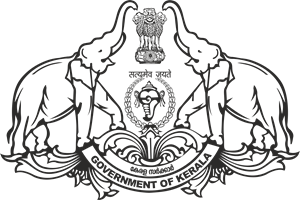About KIRF
The Kerala Institutional Ranking Framework (KIRF) is a set of metrics for the ranking of higher education institutions in the State and is, based on the agreed parameters approved by the KSHEC. The Kerala State Higher Education Council will be the implementing agency and the ranking will be carried out annually.
KIRF shall invite institutions interested to participate in the ranking exercise to register on the KIRF portal. The data should be submitted on an on-line facility created for this purpose. KIRF with the help of KSHEC and other suitably identified partner agencies will also undertake authentication of data, wherever felt necessary, and where feasible.
KIRF will extract the relevant information from this data and through software, compute the various metrics and rank institutions based on this data.
Eligibility for participation
All the Higher Education Institutions (HEIs) in the State can participate in the ranking irrespective of the discipline. The affiliating universities should not include details of their affiliating colleges. Institutions that have graduated at least three batches of students in full time UG or PG programs, where the duration is not less than three years for the UG programs and two years for the PG programs are eligible to participate.
Calculation of Metrics
The performance parameters are organised into five broad heads, and have been further elaborated into suitable sub-heads. Each broad head has an overall weight assigned to it. Within each head, the various sub-heads also have an appropriate mark allocation. There are 20 indicators in all. Relevant data needed for each sub -head is identified and in case of certain sub-heads such as research productivity, research impact and h-index, data will be obtained/collected by the institution from third party sources like Web of Science/Scopus
.
A suitable metric is then proposed based on this data, which computes a score under each sub-head. The sub-head scores are then added to obtain scores for each individual head. The overall score is computed based on the weights allotted to each head. The overall score can take a maximum value of 100.
The institutions can then be rank-ordered based on their scores.The parameters are similar for institutions on most counts, but the weights will be different on a few parameters taking into account the institution type. Overall ranking will be done and due consideration will be done based on the type of institution.
Data collection and sources
Institutional data
The Nodal Officer of the institution should be authorised to submit their institutional data in the KIRF website of KSHEC. The information provided should be accurate for the particular survey/ranking year. The data will be cross checked and for certain data third party sources will be depended upon.
Bibliometric data
The research productivity, citations , h-index can be captured from the Scopus database/ Web of Science.
Reference Date
The data will be collected for a period of three years backward from the year of ranking procedure. The data entered will be carried over for the next year ranking.
| Name of the Parameter | Reference Date |
|---|---|
| Students sanctioned/enrolled | Number of students enrolled in the first year of each academic year (2022-23; 2023-24; 2024-25) |
| Teaching/ Non-Teaching Staff | Number of teaching/non-teaching staff as on Dec 31 of each of the years-2022; 2023 and 2024 |
| Financial information (all financial data) i. Financial Resources and their Utilization (FRU) ii. Research Footprints-RFCS iii. Average Salary | For the year 2022-23, i.e. From 1st April 2022 to 31st March 2023. For the year 2023-24, i.e. From 1st April 2023 to 31st March 2024. For the year 2024-25, i.e. From 1st April 2024 to 31st March 2025. |
| Publication Data : Web of Science/Scopus | For the year 2022-23---Jan 2022 to Dec 2022 For the year 2023-24---Jan 2023 to Dec 2023 For the year 2024- 25---Jan 2024 to Dec 2024 |
| Citations | For the year 2022-23---Jan 2022 to Dec 2022 For the year 2023-24---Jan 2023 to Dec 2023 For the year 2024- 25---Jan 2024 to Dec 2024 |
| h index | For the year 2022-23---Jan 2022 to Dec 2022 For the year 2023-24---Jan 2023 to Dec 2023 For the year 2024- 25---Jan 2024 to Dec 2024 |
| Patents published/granted | Number of patents published/Granted in each of the academic sessions- 2022-23; 2023-24; 2024-25) |
| Examination result | Results in each of the academic sessions-2022-23; 2023-24; 2024-25 |
| Placement details | Number of students placed in each of the academic sessions-2022-23; 2023-24; 2024-25 |
| Entrepreneurship & Innovation | Data is collected for the academic session 2024-25 |
Errors and Correction Policy
The Nodal Officer should ensure that the data uploaded is correct. In case corrections are needed, the Nodal officer should inform KSHEC/KIRF through email with the reasons for correction. Correction of the data will be allowed till the rankings are closed. The submitted data should be countersigned by the Head of the institution.
The institution should make the raw data available on their website. It will be the Institution’s responsibility to ensure that the data published by KIRF accurately reflects the submissions by it. The institution will also be invited to check out the data supplied by or taken from third sources. If the Institution does not give any comments or feedback within a specified period on the displayed data, it will be assumed that this data is accurate. No petitions for corrections will be accepted after the declared deadline, or after the rankings have been announced.
If it is found that an institution has deliberately manipulated the submitted data, causing erroneous rankings, KIRF will remove the institution from the ranking list and future rankings and publish a suitable note to this effect.



